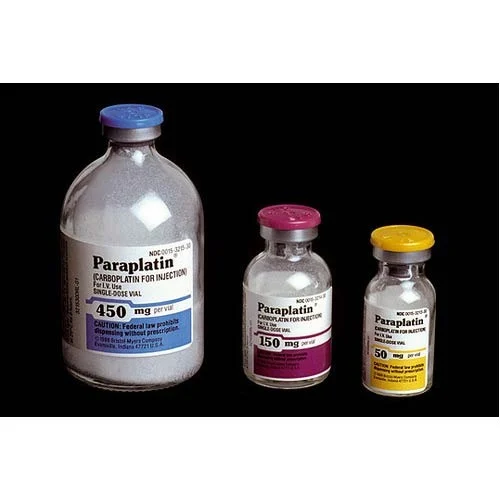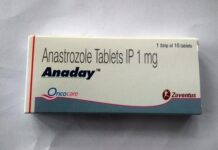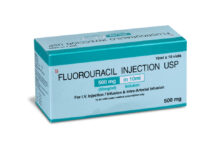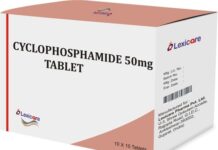Platinum drugs are a class of chemotherapy medications that contain platinum compounds as their active ingredient. These drugs are widely used in the treatment of various types of cancer, including ovarian cancer, testicular cancer, lung cancer, bladder cancer, and some types of head and neck cancers. Platinum drugs work by interfering with the DNA replication process in cancer cells, ultimately leading to their destruction. The two main platinum drugs used in clinical practice are cisplatin and carboplatin. Platinum Tablet Uses Benefits and Symptoms Side Effects

Platinum Tablet Uses:
- Ovarian Cancer: Cisplatin is commonly used in the treatment of ovarian cancer, either alone or in combination with other chemotherapy drugs. It is particularly effective in treating advanced ovarian cancer and is often used as part of first-line therapy or in recurrent disease.
- Testicular Cancer: Cisplatin is a key component of chemotherapy regimens used in the treatment of testicular cancer, including both seminomatous and non-seminomatous germ cell tumors. It is often used in combination with other drugs such as etoposide and bleomycin (BEP regimen) for optimal treatment outcomes.
- Lung Cancer: Cisplatin is used in the treatment of non-small cell lung cancer (NSCLC), particularly in advanced or metastatic disease. It is often combined with other chemotherapy drugs, such as etoposide or pemetrexed, in a regimen tailored to the individual patient’s condition.
- Bladder Cancer: Cisplatin-based chemotherapy regimens are commonly used in the treatment of bladder cancer, both in the neoadjuvant (before surgery) and adjuvant (after surgery) settings. Cisplatin may also be used in combination with radiation therapy for bladder-sparing treatments.
Platinum Tablet Benefits:
- High Antitumor Activity: Cisplatin is known for its potent antitumor activity against a wide range of cancers. It has demonstrated efficacy in shrinking tumors, controlling cancer growth, and improving survival rates in many patients.
- Wide Spectrum of Activity: Cisplatin is effective against various types of cancer, making it a versatile chemotherapy drug. It can be used to treat ovarian cancer, testicular cancer, lung cancer, bladder cancer, and other malignancies.
- Synergistic Effects: Cisplatin is often used in combination with other chemotherapy drugs or treatments to enhance its effectiveness and reduce the risk of drug resistance. Combination regimens allow for synergistic effects and may improve treatment outcomes.
- Curative Potential: In certain cancers, such as testicular cancer and ovarian cancer, cisplatin-based chemotherapy regimens have the potential to cure the disease, especially when used in early stages or in combination with surgery and/or radiation therapy.
Platinum Tablet Side Effects:
- Nephrotoxicity: One of the most significant side effects of cisplatin is nephrotoxicity, or kidney damage. Cisplatin can cause renal tubular damage and impair kidney function, leading to electrolyte imbalances, kidney injury, and potentially irreversible kidney damage.
- Ototoxicity: Cisplatin treatment can cause ototoxicity, or damage to the inner ear structures responsible for hearing and balance. This may result in hearing loss, tinnitus (ringing in the ears), dizziness, or balance problems. Ototoxicity is often dose-dependent and may be irreversible in some cases.
- Neurotoxicity: Cisplatin chemotherapy may cause neurotoxicity, resulting in peripheral neuropathy (numbness, tingling, or pain in the hands and feet) and/or central nervous system toxicity (headache, dizziness, confusion). Neurotoxicity can affect quality of life and may persist after treatment completion.
- Gastrointestinal Symptoms: Cisplatin treatment can cause gastrointestinal side effects such as nausea, vomiting, diarrhea, and mucositis (inflammation of the digestive tract lining). These symptoms can vary in severity and may require supportive care measures such as anti-nausea medications or hydration therapy.
- Myelosuppression: Cisplatin chemotherapy may suppress the bone marrow’s ability to produce blood cells, leading to myelosuppression. This can result in a decrease in white blood cells, red blood cells, and platelets, increasing the risk of infections, anemia, and bleeding tendencies.
- Hypersensitivity Reactions: Some individuals may experience hypersensitivity reactions to cisplatin, which can manifest as skin rash, itching, facial swelling, or difficulty breathing. Precautionary measures, such as premedication with antihistamines and corticosteroids, may be taken to minimize the risk of hypersensitivity reactions.
- Electrolyte Imbalances: Cisplatin treatment can disrupt electrolyte balance in the body, leading to abnormalities such as hypomagnesemia (low magnesium levels) and hypocalcemia (low calcium levels). These electrolyte imbalances can have various effects on the body, including muscle cramps, cardiac arrhythmias, and neuromuscular irritability.
- Hematologic Toxicity: Cisplatin chemotherapy may cause hematologic toxicity, including anemia, thrombocytopenia (low platelet count), and leukopenia (low white blood cell count). These hematologic abnormalities can increase the risk of bleeding, infections, and fatigue.
Platinum Tablet Symptoms :
- Ovarian Cancer: Carboplatin is commonly used in the treatment of ovarian cancer, both as first-line therapy and in recurrent disease. It is often used in combination with other chemotherapy drugs, such as paclitaxel, for optimal treatment outcomes.
- Lung Cancer: Carboplatin is used in the treatment of non-small cell lung cancer (NSCLC), particularly in advanced or metastatic disease. It is often combined with other chemotherapy drugs, such as paclitaxel or gemcitabine, in a regimen tailored to the individual patient’s condition.
- Head and Neck Cancer: Carboplatin is used in the treatment of head and neck cancers, including squamous cell carcinoma of the head and neck. It may be used alone or in combination with other chemotherapy drugs or radiation therapy.
Platinum Tablet Benefits:
- Similar Efficacy to Cisplatin: Carboplatin is considered an effective alternative to cisplatin in many cancer treatment regimens. It has similar antitumor activity and may be better tolerated in some patients due to its milder side effect profile.
- Lower Risk of Nephrotoxicity: Compared to cisplatin, carboplatin has a lower risk of causing nephrotoxicity (kidney damage). This makes it a preferred option in patients with pre-existing kidney dysfunction or those at higher risk of renal toxicity.
- Lower Risk of Ototoxicity: Carboplatin is associated with a lower risk of ototoxicity (hearing loss) compared to cisplatin. This may be advantageous in preserving hearing function, especially in patients who require long-term treatment or have pre-existing hearing impairment.
- Convenient Administration: Carboplatin is typically administered intravenously in outpatient settings, making it a convenient treatment option for many patients. This allows for shorter hospital stays







